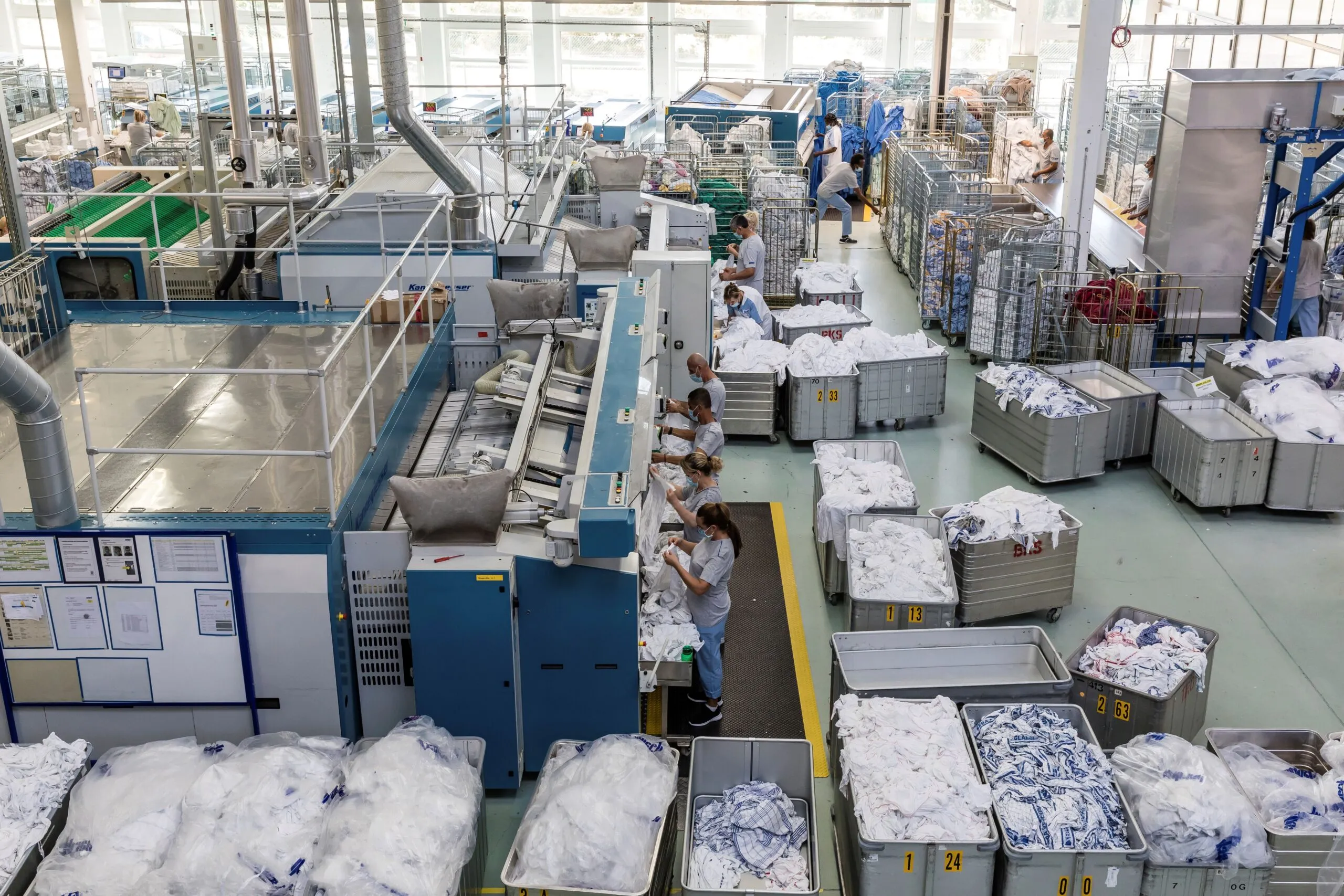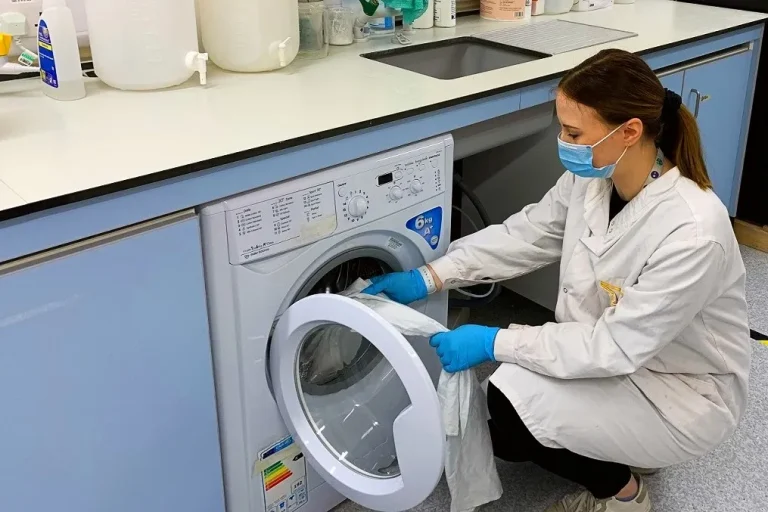Nurses should not be expected to wash their uniforms at home because it increases the risk of spreading antibiotic-resistant bacterial infections, according to a new study that found that many household washing machines do not adequately disinfect clothing even when a full 60°C cycle is used.
Based on their findings, researchers have recommended that the NHS should consider using on-site industrial machines or commercial laundry services to better disinfect healthcare uniforms, to ensure patient safety.
“Our research shows that domestic washing machines often fail to disinfect textiles”
Katie Laird
Current NHS guidelines recommend that nurses’ uniforms can safely be laundered at home as long as they are washed separately from other clothing, at the hottest temperature suitable for the fabric, in small loads.
This guidance is based on the understanding that a 10 minute wash at 60ºC removes almost all micro-organisms.
In accordance with this guidance, recent data shows that over 80% of nurses wash their uniforms at home, using a regular domestic washing machine.
However, a study carried out at De Montfort University in Leicester found that many household washing machines do not adequately disinfect clothing even when a full 60°C cycle is used.
Researchers tested six domestic washing machines to see how well they managed to disinfect clothing on a short and a full 60°C wash cycle, using standard domestic detergents.
They found that the temperature of some of the machines did not reach 60°C during the cycle, or stay hot enough for long enough.
Only three of the six machines adequately disinfected clothing on a short wash cycle, while two of the six machines failed to disinfect adequately on a full 60°C wash cycle.
The researchers also took samples from inside 12 domestic washing machines to test for bacterial contamination and to see if any of the bacteria were antibiotic resistant.
They found evidence of harmful types of bacteria including Pseudomonas, Acinetobacter and Mycobacterium in detergent drawers and rubber door seals.
These bacteria pose a risk of infection, particularly to people with weakened immune systems, noted the researchers.
Their study, published in the journal PLUS One, also found that repeated exposure to household laundry detergents could make bacteria stronger and more resistant to antibiotics.
The researchers have warned that this cross-resistance means that poorly laundered uniforms could play a role in the spread of antibiotic-resistant infections.
Katie Laird, professor of microbiology and deputy director at the Leicester Institute for Pharmaceutical and Health Innovation, was the lead researcher on the study.
She has called for the NHS to revise its laundry guidelines for healthcare workers, to improve patient safety and control the spread of hospital-acquired infections and antibiotic-resistant pathogens.
“Our research shows that domestic washing machines often fail to disinfect textiles, allowing antibiotic-resistant bacteria to survive,” Professor Laird said.
“Domestic washing machines are not designed with infection control in mind, and should not be relied upon for effectively laundering uniforms. They’re built for energy efficiency and convenience to suit private households,” she said.
“We’re urging healthcare providers and policymakers to reassess this guidance and explore safer alternatives, such as on-site commercial-grade machines or outsourced professional laundry services,” Professor Laird said.
“These machines are specifically designed to meet healthcare hygiene standards and consistently reach the high temperatures required to safely decontaminate clothing,” she said.
“Whilst washing uniforms at home might seem convenient, it’s imperative that we rethink how we launder our healthcare workers’ uniforms to ensure patient safety, staff wellbeing, and basic infection control across the NHS,” she added.
During the pandemic, Professor Laird also warned that health worker uniforms should be washed in hospitals or by an industrial laundry, and not at home, to minimise the risk of contamination and transmission of Covid-19.
She wrote to the UK government to flag her concerns over previous Public Health England guidance that stated industrial laundering should be used but if this was not possible, health workers should take uniforms home in a disposable plastic bag.
In addition, during the height of the pandemic in June 2020, Professor Laird made a video with Nursing Times on the issue of uniform cleaning and the spread of Covid-19 and surveyed nurses around the UK.

A commercial laundry

